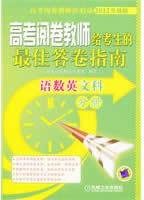║║║║besidesё╛ but��ё╛ except ╣дсц╥╗╠ФнЖ
║║║║1. ╩Ы╠╬┘^(q╗╠)└e
║║║║хЩуъ╤╪©и╠Мй╬║╟ЁЩмБ║╠�����ё╛╣╚ besides ╠Мй╬р╩╥Nюш╪сЙP(gu╗║n)о╣�����ё╛рБж╦║╟ЁЩакй╡ц╢ж╝мБё╛ъ─сп║╜║╜║╠;╤Ь except ╩Р but └t╠Мй╬р╩╥NееЁЩЙP(gu╗║n)о╣��ё╛рБж╦║╟ЁЩакй╡ц╢ж╝мБ�ё╛╡╩тысп║╜║╜║╠║ёхГё╨
║║║║Besides his wife�����ё╛his daughter also went to see him. ЁЩкШфчвсмБ�����ё╛кШе╝┐╨р╡х╔©╢ъ^кШ(╪╢фчвсе╝┐╨╤╪х╔©╢ъ^кШ)�����║ё
║║║║Nobody went to see him except [but] his wife. ЁЩкШфчвсмБ����ё╛⌡]спр╩┌─(g╗╗)хк©╢ъ^кШ(╪╢ж╩спкШфчвсх╔©╢ъ^кШ)║ё
║║║║в╒ё╨тз╥Я╤╗╬Джп���ё╛besides р╡╠Мй╬║╟ЁЩ║╜║╜ж╝мБ╡╩тысп║╜║╜ ║╠�����ё╛еcbut�����ё╛ except м╛аx�║ёхГё╨
║║║║No one passed the exam besides [except] Jim. ЁЩ╪╙д╥мБ����ё╛⌡]р╩┌─(g╗╗)хкм╗ъ^©╪т┤║ё
║║║║2. ЙP(gu╗║n)сз but еc except
║║║║(1) ┐иуъ╤╪©и╠Мй╬║╟ЁЩ║╜║╜мБ╡╩тысп║╜║╜║╠��ё╛╣╚╨╛аxиобтсп╡Н└eё╨but┌х(c╗╗)жьж╦рБаx╣д▌в╨УмЙуШпт��ё╛╤Ь except └t┌х(c╗╗)жьж╦╨СцФЁЩх╔╣д╡©╥ж�����║ё╠хщ^ё╨
║║║║All are here but one. ЁЩр╩┌─(g╗╗)хк╤╪╣╫ак�║ё
║║║║All are here except one. ъ─спр╩┌─(g╗╗)хк⌡]╣╫║ё
║║║║(2) тз╛F(xi╗╓n)╢Зс╒уZжп���ё╛but ╣д╫Ит~сц╥╗й╝╥жспоч�ё╛р╩╟Цуf│М�ё╛кЭж╩дэсцтзобапт~уZж╝╨Сё╨
║║║║╒ы noё╛ no one�ё╛ nobodyё╛ nothing����ё╛ nowhere ╣х
║║║║╒з any���ё╛ anyone����ё╛ anybody����ё╛ anythingё╛ anywhere ╣х
║║║�����║╒ш every�����ё╛ everyone�����ё╛ everybodyё╛ everything����ё╛ everywhere ╣х
║║║��║╒э all��ё╛ none ╣х
║║║�����║╒щ who����ё╛ whatё╛ where ╣х
║║║║is good except for a few spelling mistakes. кШ╣двВнд▄▒╣ц╡╩Еe(cu╗╟)��ё╛ж╩йгсп▌вл▌ф╢▄▒Еe(cu╗╟)у`�║ё
║║║║в╒ё╨хТсцсз╬Дйвё╛└t except for еc except м╛аx(╣╚ except м╗Ёё╡╩сцсз╬Дйв)��║ё
║║║║3.ЙP(gu╗║n)сз except for еc but forё╨
║║║║except for жВр╙╠Мй╬ееЁЩ�ё╛but for жВр╙╠Мй╬р╩╥Nл⌠■M≈l╪Ч(еcл⌠■MуZ БъBсц)����║ёхГё╨
║║║║Except for me����ё╛ everyone passed the exam. ЁЩакнрж╝мБё╛╢С╪р╤╪м╗ъ^ак©╪т┤��║ё
║║║║But for my help���ё╛ she would not have passed the exam. хТ╡╩йгнр╣д▌мжЗ��ё╛кЩ╬м╡╩∙Ч(hu╗╛)м╗ъ^©╪т┤��║ё
║║║║But for the atmosphere plants would die. хГ╧Ш⌡]сп╢С Б��ё╛ж╡нО╬м∙Ч(hu╗╛)кюмЖ���║ё
║║║║4. besides╣дфДкШсц╥╗
║║║║besides ЁЩсцвВ╫Ит~мБё╛ъ─сцвВ╦╠т~�����ё╛фДрБ·И║╟╢кмБ║╠��║╒║╟╤Ьгр║╠ё╛©исцсз╥ж╬Д╬Дйв(м╗Ёёсц╤╨л√(h╗╓o)╦ТИ_)╩Р╬Дн╡�����║ёхГё╨
║║║║I don't want to go; besides�����ё╛ I'm too tired. нр╡╩оКх╔����ё╛╤Ьгрнрр╡л╚юшак�����║ё
║║║║This car belongs to Smith�ё╛ and he has two others besides. ъ@╡©э┤йгй╥цэк╧╣дё╛╢кмБкШъ─сп┐и╡©����║ё






